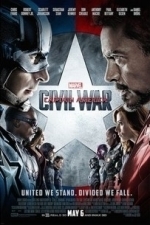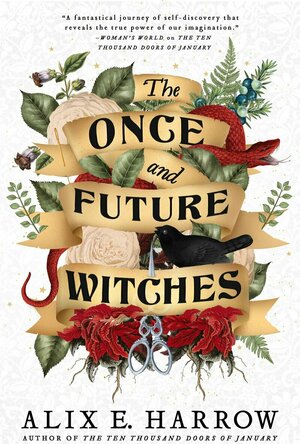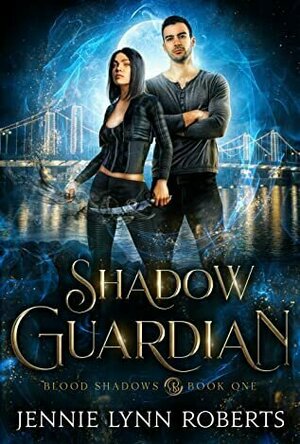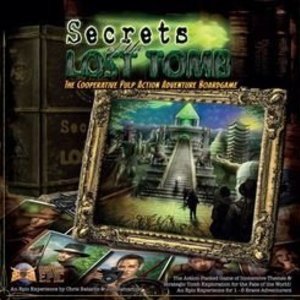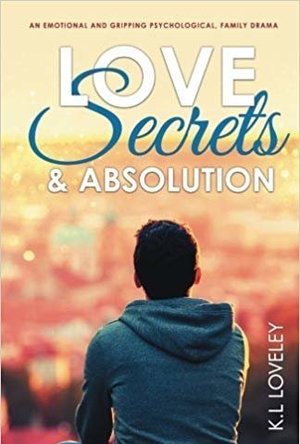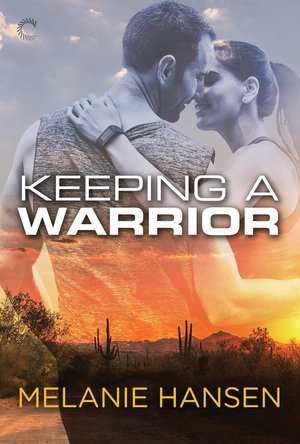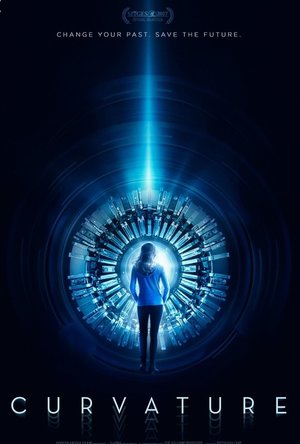Search
Search results
Gareth von Kallenbach (980 KP) rated Captain America: Civil War (2016) in Movies
Jun 19, 2019
The summer 2016 movie season has launched in a big way with Marvel Studios offering up the eagerly awaited “Captain America” Civil War” which once again stars Chris Evans and the title character.
The film is set in the aftermath of “The Avengers: Age of Ultron” where the governments of the world have grown fearful of the devastation that can be unleashed by their super-powered protectors and their enemies and devises a plan of action.
A law is introduced that requires heroes to register and be held accountable to governing bodies which for the most part would also control their activities.
Tony Stark (Robert Downey Jr.), is still reeling from his part in the Ultron threat and the usually smug and cocky Iron Man is all in favor of the new legislation proposal.
Captain America/Steve Rogers on the other hand remembers the evils of making various groups register and answer to the government during World War II and he is very opposed to this new development.
As if this was not enough for the heroes to deal with, a villain named Crossbones (Frank Grillo) is causing trouble and then there is the matter of The Winter Soldier (Sebastian Stan), which is like adding gasoline on a raging fire.
The Winter Soldier is blamed for a horrific tragedy and the forces of the world are poised to bring him to a final justice no matter the cost.
Rogers believes that his former friend can be saved and as such is willing to take great risks to do so. Stark and his supporters believe that The Winter Soldier is a threat that must be stopped at all costs. This combined with the already growing tensions over the new legislation divides the former allies and puts friends and allies at odds with one another.
The resulting backlash is a battle that threatens to destabilize those sworn to protect society and makes the world an even more dangerous and volatile place especially with an ever darker threat looming in the shadows.
The film does a great job mixing in intense action sequences that are visual effect spectacles, yet never losing the fact that is story powered by real characters with real issues.
The characters may be super powered, but they are dealing with real issues ranging from trust, loyalty, betrayal, and accountability in an ever changing world that seems to be caught in the crossfire of their heroic deeds.
The large ensemble cast works very well with one another and this is the key to making a film like this work. This is not simply pitting characters against one another in a conflict; this is a well-developed story that sets up future films very well but uses compelling and interesting characters with some timely humor to carry the film.
There are plenty of surprise moments in the film and Directors Anthony and Joe Russo proved that their last Captain America outing was no fluke, as they have delivered an action-packed and gripping film with some very mature content and themes set against some dazzling and intense action sequences which have become a trademark of the Marvel Film Franchise.
http://sknr.net/2016/05/03/captain-america-civil-war/
The film is set in the aftermath of “The Avengers: Age of Ultron” where the governments of the world have grown fearful of the devastation that can be unleashed by their super-powered protectors and their enemies and devises a plan of action.
A law is introduced that requires heroes to register and be held accountable to governing bodies which for the most part would also control their activities.
Tony Stark (Robert Downey Jr.), is still reeling from his part in the Ultron threat and the usually smug and cocky Iron Man is all in favor of the new legislation proposal.
Captain America/Steve Rogers on the other hand remembers the evils of making various groups register and answer to the government during World War II and he is very opposed to this new development.
As if this was not enough for the heroes to deal with, a villain named Crossbones (Frank Grillo) is causing trouble and then there is the matter of The Winter Soldier (Sebastian Stan), which is like adding gasoline on a raging fire.
The Winter Soldier is blamed for a horrific tragedy and the forces of the world are poised to bring him to a final justice no matter the cost.
Rogers believes that his former friend can be saved and as such is willing to take great risks to do so. Stark and his supporters believe that The Winter Soldier is a threat that must be stopped at all costs. This combined with the already growing tensions over the new legislation divides the former allies and puts friends and allies at odds with one another.
The resulting backlash is a battle that threatens to destabilize those sworn to protect society and makes the world an even more dangerous and volatile place especially with an ever darker threat looming in the shadows.
The film does a great job mixing in intense action sequences that are visual effect spectacles, yet never losing the fact that is story powered by real characters with real issues.
The characters may be super powered, but they are dealing with real issues ranging from trust, loyalty, betrayal, and accountability in an ever changing world that seems to be caught in the crossfire of their heroic deeds.
The large ensemble cast works very well with one another and this is the key to making a film like this work. This is not simply pitting characters against one another in a conflict; this is a well-developed story that sets up future films very well but uses compelling and interesting characters with some timely humor to carry the film.
There are plenty of surprise moments in the film and Directors Anthony and Joe Russo proved that their last Captain America outing was no fluke, as they have delivered an action-packed and gripping film with some very mature content and themes set against some dazzling and intense action sequences which have become a trademark of the Marvel Film Franchise.
http://sknr.net/2016/05/03/captain-america-civil-war/
Gareth von Kallenbach (980 KP) rated Mr. & Mrs. Smith (2005) in Movies
Aug 14, 2019
Not since the film The War of the Roses has the silver screen portrayed marital discord in such as humorous and violent fashion as it does in Mr. and Mrs. Smith.
The film stars Brad Pitt and Angelina Jolie as the title characters who are approaching their sixth year of marriage, though Mr. Smith seems to be convinced it has only been five.
Tedium has set into their suburban lives, and the couple has entered counseling in an effort to help their lack of communication. The story of how they met and various aspects of their lives with one another paints the picture of how much the flame has dulled after such an explosive start for the couple.
As routine has their home lives have become, one thing that has not changed is their work. Unknown to each other, the Smiths are actually assassins for competing firms. Both Smiths are convinced that their spouse works in other fields and manage to complete most of their missions during the day or night under the guise of work for the cover careers.
Things change when both agents are assigned by their firms to a mission where they end up encountering each other from a distance. Unsure of whom the person they spotted is, they are ordered to eliminate the person in order to protect their cover.
This begins a rapid series of events that, as anyone who has seen the trailer will realize, the Smiths will figure out that the person they have been seeking is their very own spouse. While this destination is inevitable to the plot is not a surprise, the trip leading up to it, and the whirlwind of events that follows this discovery, is what really makes this film such an enjoyable ride.
Naturally when the two uncover their spouse’s true identity, the instincts of their professions as well as their pent up frustrations come out in an orgy of passion and violence that leaves a trail of devastation. The various encounters between the Smiths not only escalate on the violence scale, but due to issue such as pride, reputations, and betrayal, the objectivity and impersonal nature of their work are abandoned.
I think Shakespeare put it best when he said that “Hell hath no fury like a woman scorned”, as the scenes of Jane Smith unloading her pent up fury are almost as hysterical as the segments where John Smith takes his turn at the plate.
A prime example of the films ability to mix action and comedy to perfection is the classic dance scene where the two attempt to disarm one another in an effort to get the upper hand. Pitt and Jolie dance and exchanges barbs, as they keep the beat and discard the weapons they find, as they plot to gain the upper hand.
The film did lose a bit of its amazing momentum about a third of the way in, before regrouping and bringing the film to an action packed and very satisfying conclusion. The supporting work of Vince Vaughn is very funny, but sadly his presence is limited. The films works very well because the chemistry between the two leads is very strong, as are the action and humor sequences. Without a doubt one of the best movies of the summer and one not to be missed
The film stars Brad Pitt and Angelina Jolie as the title characters who are approaching their sixth year of marriage, though Mr. Smith seems to be convinced it has only been five.
Tedium has set into their suburban lives, and the couple has entered counseling in an effort to help their lack of communication. The story of how they met and various aspects of their lives with one another paints the picture of how much the flame has dulled after such an explosive start for the couple.
As routine has their home lives have become, one thing that has not changed is their work. Unknown to each other, the Smiths are actually assassins for competing firms. Both Smiths are convinced that their spouse works in other fields and manage to complete most of their missions during the day or night under the guise of work for the cover careers.
Things change when both agents are assigned by their firms to a mission where they end up encountering each other from a distance. Unsure of whom the person they spotted is, they are ordered to eliminate the person in order to protect their cover.
This begins a rapid series of events that, as anyone who has seen the trailer will realize, the Smiths will figure out that the person they have been seeking is their very own spouse. While this destination is inevitable to the plot is not a surprise, the trip leading up to it, and the whirlwind of events that follows this discovery, is what really makes this film such an enjoyable ride.
Naturally when the two uncover their spouse’s true identity, the instincts of their professions as well as their pent up frustrations come out in an orgy of passion and violence that leaves a trail of devastation. The various encounters between the Smiths not only escalate on the violence scale, but due to issue such as pride, reputations, and betrayal, the objectivity and impersonal nature of their work are abandoned.
I think Shakespeare put it best when he said that “Hell hath no fury like a woman scorned”, as the scenes of Jane Smith unloading her pent up fury are almost as hysterical as the segments where John Smith takes his turn at the plate.
A prime example of the films ability to mix action and comedy to perfection is the classic dance scene where the two attempt to disarm one another in an effort to get the upper hand. Pitt and Jolie dance and exchanges barbs, as they keep the beat and discard the weapons they find, as they plot to gain the upper hand.
The film did lose a bit of its amazing momentum about a third of the way in, before regrouping and bringing the film to an action packed and very satisfying conclusion. The supporting work of Vince Vaughn is very funny, but sadly his presence is limited. The films works very well because the chemistry between the two leads is very strong, as are the action and humor sequences. Without a doubt one of the best movies of the summer and one not to be missed
Lottie disney bookworm (1056 KP) rated The Once and Future Witches in Books
Sep 20, 2020
Thank you to Netgalley for luring me in with this recommendation and the gorgeous cover art. Thank you to Alix E Harrow for providing such an amazing story for this ARC review. All the opinions expressed below are my own.
"Witches and women's rights. Suffrage and spells. They're both...a kind of power...the kind we're not allowed to have."
I'm not often drawn to books involving witches to be honest. I love an annual viewing of Hocus Pocus (who doesn't?!) but that is usually where the affinity ends.
If anything can change my nonchalance, I suspect it may be Alix E. Harrow. This is the first piece of work I have read by the Hugo award winning writer and I don’t need any tarot cards to predict it will not be the last. From the outset of The Once and Future Witches I was hooked: the worldbuilding alone is amazing; you can immediately picture the mills, avenues, squares and slums of New Salem as well as the mysterious tower that pulls our three main characters together.
The three Eastwood sisters themselves are another work of art. Juniper, Agnes and Bella are fierce, formidable women in wildly different ways. They are also flawed, stubborn and quite frankly, inspirational: by linking women’s rights and witchcraft this fantasy novel suddenly becomes more real and relatable to the modern female reader, despite being set in 1893. We empathise, sympathise and rage right alongside the Eastwood sisters on their quest for equality in a male-controlled world.
However, not even witches can act alone and the Eastwood sisters have an amazing cast of supporting characters surrounding them. Impressively, not a single one of these characters can be accused of being two-dimensional: the character development that Harrow has invested into this novel is incredible and must have taken so much work! From the Suffragette’s secretary to the skin-crawling villain to the women and men fighting (and witching) side by side; every single character is substantial and memorable. The sarcasm within Juniper for example is hilarious and even the traditional figures of the Maiden, the Mother and the Crone refuse to conform to stereotypes: I LOVED it!
The format of this novel is very clever and practically forbids you from becoming too comfortable by peppering the main story with “witch-tales”. These complement rather than distract from the storyline and also provide small changes that make you smile – such as the tales of the Sisters Grimm.
Do not be fooled though: the use of witch-tales does not prevent The Once and Future Witches from being an incredibly modern piece of writing. Topics covered include sexuality, gender identity, feminism, race as well as smashing the patriarchy: all interspersed with magic, betrayal and a hell of a lot of emotion.
I would however argue that some topics are slightly too mature for the novel to be considered YA, the description of torture and suggestions of sexual abuse probably push this book firmly into general/adult fantasy fiction novels.
The Once and Future Witches is a future bestseller in my opinion. This unique, powerful novel provides characters that you can’t help but empathise with; slow-burning, intense relationships; the trials and tribulations that come with sisterhood and plot twists at every turn.
This book will swallow you heart and soul, make you laugh, make you cry and leave you bereft at the end.
It is a must read!
"Witches and women's rights. Suffrage and spells. They're both...a kind of power...the kind we're not allowed to have."
I'm not often drawn to books involving witches to be honest. I love an annual viewing of Hocus Pocus (who doesn't?!) but that is usually where the affinity ends.
If anything can change my nonchalance, I suspect it may be Alix E. Harrow. This is the first piece of work I have read by the Hugo award winning writer and I don’t need any tarot cards to predict it will not be the last. From the outset of The Once and Future Witches I was hooked: the worldbuilding alone is amazing; you can immediately picture the mills, avenues, squares and slums of New Salem as well as the mysterious tower that pulls our three main characters together.
The three Eastwood sisters themselves are another work of art. Juniper, Agnes and Bella are fierce, formidable women in wildly different ways. They are also flawed, stubborn and quite frankly, inspirational: by linking women’s rights and witchcraft this fantasy novel suddenly becomes more real and relatable to the modern female reader, despite being set in 1893. We empathise, sympathise and rage right alongside the Eastwood sisters on their quest for equality in a male-controlled world.
However, not even witches can act alone and the Eastwood sisters have an amazing cast of supporting characters surrounding them. Impressively, not a single one of these characters can be accused of being two-dimensional: the character development that Harrow has invested into this novel is incredible and must have taken so much work! From the Suffragette’s secretary to the skin-crawling villain to the women and men fighting (and witching) side by side; every single character is substantial and memorable. The sarcasm within Juniper for example is hilarious and even the traditional figures of the Maiden, the Mother and the Crone refuse to conform to stereotypes: I LOVED it!
The format of this novel is very clever and practically forbids you from becoming too comfortable by peppering the main story with “witch-tales”. These complement rather than distract from the storyline and also provide small changes that make you smile – such as the tales of the Sisters Grimm.
Do not be fooled though: the use of witch-tales does not prevent The Once and Future Witches from being an incredibly modern piece of writing. Topics covered include sexuality, gender identity, feminism, race as well as smashing the patriarchy: all interspersed with magic, betrayal and a hell of a lot of emotion.
I would however argue that some topics are slightly too mature for the novel to be considered YA, the description of torture and suggestions of sexual abuse probably push this book firmly into general/adult fantasy fiction novels.
The Once and Future Witches is a future bestseller in my opinion. This unique, powerful novel provides characters that you can’t help but empathise with; slow-burning, intense relationships; the trials and tribulations that come with sisterhood and plot twists at every turn.
This book will swallow you heart and soul, make you laugh, make you cry and leave you bereft at the end.
It is a must read!

The Art of Losing by The Anchoress
Album
AWARD-WINNING WELSH MULTI-INSTRUMENTALIST THE ANCHORESS RETURNS WITH HER CRITICALLY ACCLAIMED SECOND...

Infinity Blade III
Games and Entertainment
App
Join our new forums: https://www.epicgames.com/infinityblade/forums/ What the press is saying about...
Debbiereadsbook (1650 KP) rated Shadow Guardian (Blood Shadows #1) in Books
Feb 19, 2022
fabulous new world!
Independent reviewer for Archaeolibrarian, I was gifted my copy of this book.
Imagine reading a book, and it changes the way you see things. Everyday things, like the Shadow the light makes behind the cuppa tea on your desk. Or the one that is in the corner, cos the light doesn't quite reach that far. Cos let me tell ya, this book has done that for me!
Enter the world of the Shadows, with Guardians, Healers and Seers. With power tripping heads of Council who want. . . well I'm not really entirely sure what his plan will lead to, but it won't be good for the norms of this world, and maybe not even for those who can manipulate the Shadows. With a betrayal at the highest level. And with love at its most profound.
I loved this book! So forgive me if I rant a bit too much!
I loved that i could process each bit of new information, before the next bit came. I loved the layers to the story. There's romance, and danger. There's the world building, and the idiot trying to destroy it. There are friendship bonds, and those bonds being decimated. And so much romance, and even that being tested.
I loved that we didn't get who was controlling the Shadows that were so slimy, I had an idea but that was wrong.
I loved that Ethan took everything thrown at him, and promptly threw it back, tenfold. I loved that Kay was as damaged as he was. And I loved that when it all goes down, he says JUST the right thing to her! He melded himself into this world beautifully. I think there might be a secret or three about his full heritage to come out, but maybe I'm just reading into the story and being greedy cos I'm like that!
While Kay and Ethan do get a HFN ending, there is, I think, much to come for them. Their relationship will again be tested, and I can't wait to read about it! And Elizabeth, Kay's gran. She needs to be happy and given what is revealed here, she might be!
There is also the matter of the idiot and the Blood Shadows and what he will do now. I can't see which way he might go!
Zach, one of the Triad of Shadow Guardians with Kay and James is next. And I'm not certain who brings the trilogy to a close! James would be good, as the third in the Triad but that would mean he comes out of this mess. And if he does, he will be deeply damaged in many ways. Oh, he's gonna break my heart, I know he is! (Assuming he gets a book! *looks pleadingly at Ms Roberts!
Ms Roberts has a skill, that enables you to just fall into whichever world she writes about and you can just absorb it all, as an everyday occurrence and nothing out of the ordinary that these people can manipulate the Shadows, hinted with blues, greens and red, and heal people with a single touch.
So thank you, Ms Roberts, for a new world to fall into, even if it's just for these three books! I look forward to reading them!
5 full and shiny stars.
*same worded review will appear elsewhere
Imagine reading a book, and it changes the way you see things. Everyday things, like the Shadow the light makes behind the cuppa tea on your desk. Or the one that is in the corner, cos the light doesn't quite reach that far. Cos let me tell ya, this book has done that for me!
Enter the world of the Shadows, with Guardians, Healers and Seers. With power tripping heads of Council who want. . . well I'm not really entirely sure what his plan will lead to, but it won't be good for the norms of this world, and maybe not even for those who can manipulate the Shadows. With a betrayal at the highest level. And with love at its most profound.
I loved this book! So forgive me if I rant a bit too much!
I loved that i could process each bit of new information, before the next bit came. I loved the layers to the story. There's romance, and danger. There's the world building, and the idiot trying to destroy it. There are friendship bonds, and those bonds being decimated. And so much romance, and even that being tested.
I loved that we didn't get who was controlling the Shadows that were so slimy, I had an idea but that was wrong.
I loved that Ethan took everything thrown at him, and promptly threw it back, tenfold. I loved that Kay was as damaged as he was. And I loved that when it all goes down, he says JUST the right thing to her! He melded himself into this world beautifully. I think there might be a secret or three about his full heritage to come out, but maybe I'm just reading into the story and being greedy cos I'm like that!
While Kay and Ethan do get a HFN ending, there is, I think, much to come for them. Their relationship will again be tested, and I can't wait to read about it! And Elizabeth, Kay's gran. She needs to be happy and given what is revealed here, she might be!
There is also the matter of the idiot and the Blood Shadows and what he will do now. I can't see which way he might go!
Zach, one of the Triad of Shadow Guardians with Kay and James is next. And I'm not certain who brings the trilogy to a close! James would be good, as the third in the Triad but that would mean he comes out of this mess. And if he does, he will be deeply damaged in many ways. Oh, he's gonna break my heart, I know he is! (Assuming he gets a book! *looks pleadingly at Ms Roberts!
Ms Roberts has a skill, that enables you to just fall into whichever world she writes about and you can just absorb it all, as an everyday occurrence and nothing out of the ordinary that these people can manipulate the Shadows, hinted with blues, greens and red, and heal people with a single touch.
So thank you, Ms Roberts, for a new world to fall into, even if it's just for these three books! I look forward to reading them!
5 full and shiny stars.
*same worded review will appear elsewhere
Paul Kellett (118 KP) rated Secrets of the Lost Tomb in Tabletop Games
May 1, 2019
Great stories (2 more)
Exciting gameplay
Great solo game with 1 hero
Rules are a little clunky in places (1 more)
Lots of little tokens to track everything
An Indiana Jones style adventure
Have you ever wanted to be Indiana Jones? Well now you can. Secrets of the Lost Tomb is an epic action adventure game in the style of 1930's pulp fiction.
Almost like a cross between Descent and Betrayal at the House on the Hill, you build the dungeon one tile at a time (from a large stack of room tiles) as you explore 3 levels trying to get to and defeat the boss and retrieve the quest item before the time track runs out.
All the creatures and events are automated making this a fully co-op game and action points are distributed evenly between the adventurers. There is also a special solo only character with a bunch of companions so you can play without having to take control of multiple characters if you wish.
I have now played through all the scenarios several times and this game is still on the top of My dungeon crawl list, it really does everything I wanted. With the base game and 7 expansions, there is a HUGE amount of content as well as rules to combine everything into a full campaign with character progression.
The scenarios are much more varied and interesting than other dungeon crawls. One mission you could be trying to stop a long dead pharaoh from coming back and spreading his evil in the world while the next mission might see you trying to stop Russian commandos from stealing Captain Nemo's submarine, The Nautilus. Each scenario has a 1930s pulp fiction feel to it and, despite the occasional typo, are very well written and thought out.
The scenarios have an introduction which sets the scene, a setup guide that tells you what tiles, creatures and items are specific to the story and need to be set aside and the win/lose conditions. There then follows a series of numbered sections which serve as chapters in the story. These are triggered by various events, normally by discovering room tiles with specific icons on them or by the comet track (which is the game's timer) hitting a certain point. This is a great feature and is easy to follow. I much prefer this to the way the quests are laid out in Descent 2e.
The scenarios are long and so far have taken nearly twice the specified amount of time as listed. That said, you are so immersed in the story and exploring the tomb, the game never feels like it is dragging or outstaying it's welcome. You just need to budget for 3-4 hours of play time per story although this does come down once you are familiar with the rules.
Yes, there are a lot of tokens and stats to keep track of, but I wouldn't say it detracts from the game or the feeling of immersion, especially after the first game or two and the fact that each player takes one action at a time going round the table until all actions have been taken means that there is less downtime than other games.
The AI is very well done with creatures moving and attacking the player with the most soul tokens (gained by killing creatures) so the most dangerous character will be the main focus of the enemy and you can plan your turn to have the right people positioned where they will be best protected/best used.
This is by far the best and most immersive dungeon crawl I've played and really has knocked Descent off as My go-to game of this genre.
Find out more about Secrets of the Lost Tomb and more at Everything Epic Games
Almost like a cross between Descent and Betrayal at the House on the Hill, you build the dungeon one tile at a time (from a large stack of room tiles) as you explore 3 levels trying to get to and defeat the boss and retrieve the quest item before the time track runs out.
All the creatures and events are automated making this a fully co-op game and action points are distributed evenly between the adventurers. There is also a special solo only character with a bunch of companions so you can play without having to take control of multiple characters if you wish.
I have now played through all the scenarios several times and this game is still on the top of My dungeon crawl list, it really does everything I wanted. With the base game and 7 expansions, there is a HUGE amount of content as well as rules to combine everything into a full campaign with character progression.
The scenarios are much more varied and interesting than other dungeon crawls. One mission you could be trying to stop a long dead pharaoh from coming back and spreading his evil in the world while the next mission might see you trying to stop Russian commandos from stealing Captain Nemo's submarine, The Nautilus. Each scenario has a 1930s pulp fiction feel to it and, despite the occasional typo, are very well written and thought out.
The scenarios have an introduction which sets the scene, a setup guide that tells you what tiles, creatures and items are specific to the story and need to be set aside and the win/lose conditions. There then follows a series of numbered sections which serve as chapters in the story. These are triggered by various events, normally by discovering room tiles with specific icons on them or by the comet track (which is the game's timer) hitting a certain point. This is a great feature and is easy to follow. I much prefer this to the way the quests are laid out in Descent 2e.
The scenarios are long and so far have taken nearly twice the specified amount of time as listed. That said, you are so immersed in the story and exploring the tomb, the game never feels like it is dragging or outstaying it's welcome. You just need to budget for 3-4 hours of play time per story although this does come down once you are familiar with the rules.
Yes, there are a lot of tokens and stats to keep track of, but I wouldn't say it detracts from the game or the feeling of immersion, especially after the first game or two and the fact that each player takes one action at a time going round the table until all actions have been taken means that there is less downtime than other games.
The AI is very well done with creatures moving and attacking the player with the most soul tokens (gained by killing creatures) so the most dangerous character will be the main focus of the enemy and you can plan your turn to have the right people positioned where they will be best protected/best used.
This is by far the best and most immersive dungeon crawl I've played and really has knocked Descent off as My go-to game of this genre.
Find out more about Secrets of the Lost Tomb and more at Everything Epic Games
Sassy Brit (97 KP) rated Love, Secrets and Absolution in Books
Jun 6, 2019
Contains spoilers, click to show
I’m reviewing Love, Secrets and Absolution, by K.L. Lovely. Here are my thoughts:
^^ Told from alternative viewpoints, Love, Secrets and Absolution is an emotional story revolving around the lives of a couple, Grace and Paul, who are trying to come to terms with the stresses and strains of bringing up an autistic child. But what makes this story different is how it’s set at a time which coincides with the Nottingham miners strikes of the 80s, where pit closures and pay restraints led to unofficial strikes, job losses and violence. Harsh times to say the least. This added a new dimension to the story, and of course, more pressure for Paul, and ultimately the whole family. They were terrible times in Britain, a lot of families suffered because of it.
^^ Right from the beginning we see young Alfie is different to other children. The author, K. L.oveley, helps show us this, by what I thought was a highly unusual technique- giving baby and toddler versions of Alfie his own voice.
^^ I must admit at first I was thinking, this doesn’t sound like a baby. After all, very young babies are not able to communicate in such a coherent manner. However, as I read further, I saw how Alfie’s voice as a child — seeing things differently from his POV — really helped to provide a deeper look into his inner thoughts and feelings. A fresh and unique approach, which revealed his own perspective of how he didn’t fit in with other kids, even if he was unable to understand the “why” himself. Very clever. It certainly made things clearer for me and highlighted aspects of autism I may have missed otherwise.
^^ Taking the time-period into consideration, I found the portrayal of the teachers and the way they behaved cruelly and professionally towards Alfie and Grace shocking, yet realistic. Back in those days many professionals were not trained to spot differences and learning difficulties in the way they are today. To outsiders who didn’t understand what Alfie was going though and thinking, he did just look like a trouble maker. Nowadays we know better and there is an ever-growing awareness and understanding of the many different spectrums of autism.
^^ Alfie’s father, Paul, may not have won the best dad of the year award, but I felt he was a realistic representation of a man living and working in a very masculine environment, where men were largely regarded as the breadwinners of the household and job scarcity was a huge issue. He didn’t know how to handle Alfie, and in a way you can’t blame him for that. Not everyone is capable of being a really good parent, especially when their own life has turned upside down in a blink of an eye.
^^ There’s also a really good story line around a girl called Magenta, which I felt helped strengthen both Alfie and Grace’s bond. A lovely touch. As was Grace’s newfound strength and courage, which really made this story become more than just gloom and doom. Her steadfast devotion to her son is both amazing and commendable, and I enjoyed seeing how she turned her life around.
Overall: This thought-provoking book is as much about relationships, as it is autism. We see the hopes and dreams of a young family shattered by a lack of communication, misunderstandings and even betrayal. Yet, despite all the struggles and heartache this family go through, we discover the true power of love; how it can heal, comfort and carry us forward through the toughest of times. A heart-warming, memorable and most satisfying read.
^^ Told from alternative viewpoints, Love, Secrets and Absolution is an emotional story revolving around the lives of a couple, Grace and Paul, who are trying to come to terms with the stresses and strains of bringing up an autistic child. But what makes this story different is how it’s set at a time which coincides with the Nottingham miners strikes of the 80s, where pit closures and pay restraints led to unofficial strikes, job losses and violence. Harsh times to say the least. This added a new dimension to the story, and of course, more pressure for Paul, and ultimately the whole family. They were terrible times in Britain, a lot of families suffered because of it.
^^ Right from the beginning we see young Alfie is different to other children. The author, K. L.oveley, helps show us this, by what I thought was a highly unusual technique- giving baby and toddler versions of Alfie his own voice.
^^ I must admit at first I was thinking, this doesn’t sound like a baby. After all, very young babies are not able to communicate in such a coherent manner. However, as I read further, I saw how Alfie’s voice as a child — seeing things differently from his POV — really helped to provide a deeper look into his inner thoughts and feelings. A fresh and unique approach, which revealed his own perspective of how he didn’t fit in with other kids, even if he was unable to understand the “why” himself. Very clever. It certainly made things clearer for me and highlighted aspects of autism I may have missed otherwise.
^^ Taking the time-period into consideration, I found the portrayal of the teachers and the way they behaved cruelly and professionally towards Alfie and Grace shocking, yet realistic. Back in those days many professionals were not trained to spot differences and learning difficulties in the way they are today. To outsiders who didn’t understand what Alfie was going though and thinking, he did just look like a trouble maker. Nowadays we know better and there is an ever-growing awareness and understanding of the many different spectrums of autism.
^^ Alfie’s father, Paul, may not have won the best dad of the year award, but I felt he was a realistic representation of a man living and working in a very masculine environment, where men were largely regarded as the breadwinners of the household and job scarcity was a huge issue. He didn’t know how to handle Alfie, and in a way you can’t blame him for that. Not everyone is capable of being a really good parent, especially when their own life has turned upside down in a blink of an eye.
^^ There’s also a really good story line around a girl called Magenta, which I felt helped strengthen both Alfie and Grace’s bond. A lovely touch. As was Grace’s newfound strength and courage, which really made this story become more than just gloom and doom. Her steadfast devotion to her son is both amazing and commendable, and I enjoyed seeing how she turned her life around.
Overall: This thought-provoking book is as much about relationships, as it is autism. We see the hopes and dreams of a young family shattered by a lack of communication, misunderstandings and even betrayal. Yet, despite all the struggles and heartache this family go through, we discover the true power of love; how it can heal, comfort and carry us forward through the toughest of times. A heart-warming, memorable and most satisfying read.
Debbiereadsbook (1650 KP) rated Keeping a Warrior (Loving a Warrior #2) in Books
Jun 18, 2019
stunning foloow up!
Independent reviewer for Archaeolibrarian, I was gifted my copy of this book.
This is book 2 in the Loving a Warrior series, but you don’t NEED to have read book one, Loving a Warrior, for this to make sense. But personally, I would recommend you do. Cos I loved that book, and Matt and Shane play a huge part here.
Devon is trailing a path through a man’s world, a path she will not be veered from. But meeting Rhys, and how she connects with him on a very primal level, scares her a bit. When Devon’s full history comes clear, and Rhys’ too, their relationship takes the next step. Temporary, but NOT casual, right?
I loved this book, but equally I struggled with it. I shall attempt to voice why!
At times, I wanted to slap Rhys, I really did! He KNEW he was stringing his ex along, deep down he knew it, but he did nothing to stop it. He answered her calls, her messages, her crying down the phone, and pulled the string along a bit more. He KNEW he had to let her go. But then Devon comes into his life again. They met some 4 years before during an op. And here they are, working together again. And he doesn’t shut Lani down IMMEDIATELY! And I wanted to slap him some more.
He DOES care for Devon, right from the start though, and that makes him really question what he had been doing.
Devon’s trauma doesn’t come clear immediately, it kinda creeps out along the way. And it’s shocking, the level of betrayal she suffered, and it appears MANY women in the armed forces suffer. And I think this is what I found most difficult to deal with. How high up the food chain the covering up goes.
Oh, no, this bit, THIS is what I struggled with the most! Matt and Shane play a HUGE part here. Granted, they spend most of the book either fighting or ignoring each other, trying to find what they really feel for each other but failing miserably. Matt, apparently, said something to Shane. WHAT was said was never explained, and I’ve been trying to recall if this happened in their book, but short of going back to reread (I don’t, nor do I have the time!) I will never know, and I wanted to!
I loved the way Hanssen melds Loving a Warrior into Keeping a Warrior, not just because of Shane and Matt’s part here, but because of that other thing, the thing that I did NOT see coming! Had I read the two books back to back, I might have picked it up way WAAAAAAAAAAAAAAAAAAAAY right back at the beginning of the book, but I didn’t, and I was blown away by that little revelation!
Both Devon and Rhys have a say, in the third person. I did not see any spelling or editing to spoil my reading, and I read this book in one sitting, not an easy or short read, but I could NOT put it down!
Who is next? I dunno. Are there more in this series? I hope so! Oh please tell me there will be! It would be great if Matt, Shane, Devon and Rhys all take part too!
Ms Hansen has 9 books (according to Goodreads) and now I’ve read 3. 3 very different, but still amazing books. I want to read the rest of them. I want to start at the beginning and work my way through. I want to follow the path of this author, cos she is on my hit list now!!
5 stars
**same worded review will appear elsewhere**
This is book 2 in the Loving a Warrior series, but you don’t NEED to have read book one, Loving a Warrior, for this to make sense. But personally, I would recommend you do. Cos I loved that book, and Matt and Shane play a huge part here.
Devon is trailing a path through a man’s world, a path she will not be veered from. But meeting Rhys, and how she connects with him on a very primal level, scares her a bit. When Devon’s full history comes clear, and Rhys’ too, their relationship takes the next step. Temporary, but NOT casual, right?
I loved this book, but equally I struggled with it. I shall attempt to voice why!
At times, I wanted to slap Rhys, I really did! He KNEW he was stringing his ex along, deep down he knew it, but he did nothing to stop it. He answered her calls, her messages, her crying down the phone, and pulled the string along a bit more. He KNEW he had to let her go. But then Devon comes into his life again. They met some 4 years before during an op. And here they are, working together again. And he doesn’t shut Lani down IMMEDIATELY! And I wanted to slap him some more.
He DOES care for Devon, right from the start though, and that makes him really question what he had been doing.
Devon’s trauma doesn’t come clear immediately, it kinda creeps out along the way. And it’s shocking, the level of betrayal she suffered, and it appears MANY women in the armed forces suffer. And I think this is what I found most difficult to deal with. How high up the food chain the covering up goes.
Oh, no, this bit, THIS is what I struggled with the most! Matt and Shane play a HUGE part here. Granted, they spend most of the book either fighting or ignoring each other, trying to find what they really feel for each other but failing miserably. Matt, apparently, said something to Shane. WHAT was said was never explained, and I’ve been trying to recall if this happened in their book, but short of going back to reread (I don’t, nor do I have the time!) I will never know, and I wanted to!
I loved the way Hanssen melds Loving a Warrior into Keeping a Warrior, not just because of Shane and Matt’s part here, but because of that other thing, the thing that I did NOT see coming! Had I read the two books back to back, I might have picked it up way WAAAAAAAAAAAAAAAAAAAAY right back at the beginning of the book, but I didn’t, and I was blown away by that little revelation!
Both Devon and Rhys have a say, in the third person. I did not see any spelling or editing to spoil my reading, and I read this book in one sitting, not an easy or short read, but I could NOT put it down!
Who is next? I dunno. Are there more in this series? I hope so! Oh please tell me there will be! It would be great if Matt, Shane, Devon and Rhys all take part too!
Ms Hansen has 9 books (according to Goodreads) and now I’ve read 3. 3 very different, but still amazing books. I want to read the rest of them. I want to start at the beginning and work my way through. I want to follow the path of this author, cos she is on my hit list now!!
5 stars
**same worded review will appear elsewhere**
Gareth von Kallenbach (980 KP) rated Curvature (2018) in Movies
Jul 8, 2019
If there’s any particular genre i’m particularly keen too, it’s science fiction. Books, movies, television, comics, you name it. I’ve been watching the old school versions of ‘The Twilight Zone’ and ‘The Outer Limits’ since I was like 5 years old (that could explain quite a few things actually). As far as movies? That’s going to lead only to the past, the future, other dimensions, etc. If you had to nail it down even further within the genre of science fiction, I’d have to go right to anything revolving around time travel. That’s where today’s film for your consideration comes in. This one in particular doesn’t seem to be getting the credit it deserves and although it’s a bit rough around the edges, I think it also deserves a shot.
‘Curvature’ is a 2017 science fiction/thriller film (released on February 23rd of this year) written by Brian DeLeeuw and directed by Diego Hallivis. The film stars Lyndsy Fonseca, Noah Bean, Glenn Morshower, Zach Avery, Alex Lanipekun, and Linda Hamilton (yes … THEE Linda Hamilton as in ‘Sarah Conner’).
Helen (Fonseca) is grieving the lose of her husband Wells (Bean) in the aftermath of his suicide. Not long after, Wells’s colleague Tomas (Morshower) seeks her out and asks for her blessing to continue the research project that he and Wells were involved in. Being an engineer and a scientist herself, she agrees and not long after returns to work trying to confront the grief as best she can with the guidance and help of her mentor Florence (Hamilton). Without warning, Helen succumbs to a blackout and awakens several days later. Upon awakening at home, she learns that several days have passed and receives a phone call …. from HERSELF. Helen warns herself to get out of the house as soon as possible as a man in a black BMW is coming to the house to kill her. In the confusion that follows, she manages to barely escape and seek out her friend Alex. What follows is a story of deceit, betrayal, and a conspiracy that goes beyond what Helen could imagine where she can’t trust anyone … not even her future self.
Obviously, i’m biased her being partial to the genre. That being said .. this movie is was, is, and will be excellent. 4 out of 5 stars. What impressed me about the film was how well the writing went with the talent of all the actors involved. My only real complaint, is that I wish they had incorporated more dialogue into the 90 minute movie. It’s almost like they sacrificed time between characters for the special effects which I will say, were absolutely awesome for an independent film. The film fell somewhere between a movie and a television episode as far as the experience. I would’ve preferred it to be one or the other and not in between if that makes any sense. However, I was still blown away by the film and will gladly watch it again and add it to my library at the first opportunity. Not to give too much of the film away, one thing I found unique about this particular time-travel film is how the writer came up with the concept that the nature of the ‘experiment’ allowed for someone to only go back so far into the past between a few hours and a few days limiting how far back you could alter history so-to-speak. The intent wasn’t necessarily to save because too much time had passed … but to ‘stop’. As for the ‘star power of the film’, I saw it as a tip of the hat to other films in the time travel genre. This film definitely deserves a place in the science fiction/time travel library. Take my suggestion and give it a look.
‘Curvature’ is a 2017 science fiction/thriller film (released on February 23rd of this year) written by Brian DeLeeuw and directed by Diego Hallivis. The film stars Lyndsy Fonseca, Noah Bean, Glenn Morshower, Zach Avery, Alex Lanipekun, and Linda Hamilton (yes … THEE Linda Hamilton as in ‘Sarah Conner’).
Helen (Fonseca) is grieving the lose of her husband Wells (Bean) in the aftermath of his suicide. Not long after, Wells’s colleague Tomas (Morshower) seeks her out and asks for her blessing to continue the research project that he and Wells were involved in. Being an engineer and a scientist herself, she agrees and not long after returns to work trying to confront the grief as best she can with the guidance and help of her mentor Florence (Hamilton). Without warning, Helen succumbs to a blackout and awakens several days later. Upon awakening at home, she learns that several days have passed and receives a phone call …. from HERSELF. Helen warns herself to get out of the house as soon as possible as a man in a black BMW is coming to the house to kill her. In the confusion that follows, she manages to barely escape and seek out her friend Alex. What follows is a story of deceit, betrayal, and a conspiracy that goes beyond what Helen could imagine where she can’t trust anyone … not even her future self.
Obviously, i’m biased her being partial to the genre. That being said .. this movie is was, is, and will be excellent. 4 out of 5 stars. What impressed me about the film was how well the writing went with the talent of all the actors involved. My only real complaint, is that I wish they had incorporated more dialogue into the 90 minute movie. It’s almost like they sacrificed time between characters for the special effects which I will say, were absolutely awesome for an independent film. The film fell somewhere between a movie and a television episode as far as the experience. I would’ve preferred it to be one or the other and not in between if that makes any sense. However, I was still blown away by the film and will gladly watch it again and add it to my library at the first opportunity. Not to give too much of the film away, one thing I found unique about this particular time-travel film is how the writer came up with the concept that the nature of the ‘experiment’ allowed for someone to only go back so far into the past between a few hours and a few days limiting how far back you could alter history so-to-speak. The intent wasn’t necessarily to save because too much time had passed … but to ‘stop’. As for the ‘star power of the film’, I saw it as a tip of the hat to other films in the time travel genre. This film definitely deserves a place in the science fiction/time travel library. Take my suggestion and give it a look.
